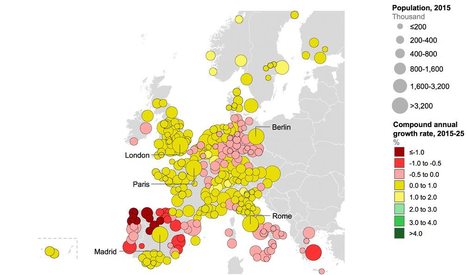In which John Green teaches you about population. So, how many people can reasonably live on the Earth? Thomas Malthus got it totally wrong in the 19th century, but for some reason, he keeps coming up when we talk about population. In 1800, the human population of the Earth passed 1 billion, and Thomas Malthus posited that growth had hit its ceiling, and the population would level off and stop growing. He was totally right. Just kidding, he was totally wrong! There are like 7 billion people on the planet now! John will teach a little about how Malthus made his calculations, and explain how Malthus came up with the wrong answer. As is often the case, it has to do with making projections based on faulty assumptions. Man, people do that a lot.
Research and publish the best content.
Get Started for FREE
Sign up with Facebook Sign up with X
I don't have a Facebook or a X account
Already have an account: Login

Biocluster: Cluster of ICSU Unions focusing on Biology
Curated by
Gilbert C FAURE
 Your new post is loading... Your new post is loading...
 Your new post is loading... Your new post is loading...
|
James Hardie's curator insight,
April 17, 2017 9:12 PM
Geographical skills and concepts: place / space / scale / change Geographical knowledge: "Causes and consequences of urbanisation, drawing on a study from Indonesia, or another country of the Asia region (ACHGK054)" 
Olivia Campanella's curator insight,
December 14, 2018 8:17 PM
In this article the maps below are a good tool for Regional Geography classes. These maps show how the world is experiencing rapid urbanization, but not all cities are growing. Population is likely to decline in 17% in developed regions
|










